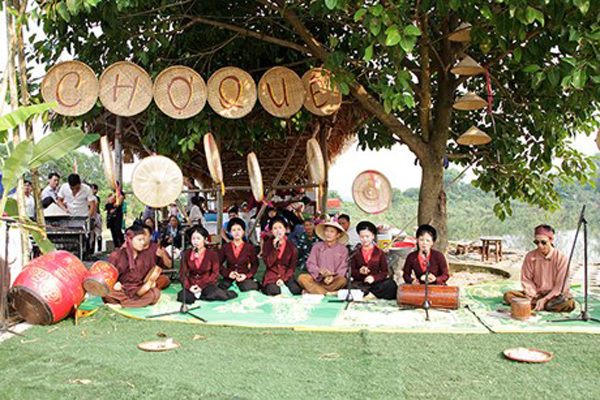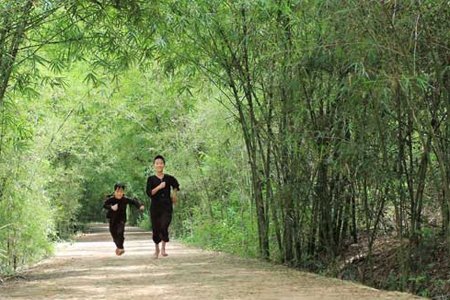Sociologists have tried to attribute the "Japanese Miracle" to the Japanese sense of community. A similar approach has often been resorted to in explaining the success of the Vietnamese in defending their country from foreign aggression.
To really understand this Vietnamese sense of community we should have an idea of the very strong socio-affective ties binding the "I" to the "We," the individual to the community, big or small. The origin of such ties may be traced back to the formation of the nation and the beginning of the country’s statehood.
Vietnam, lying in the heart of Southeast Asia, developed its own mode of life and its own culture as early as the Bronze Age and before it was exposed to Chinese and Indian influences.

The Vietnamese nation was formed through the sporadic multiplication of villages (lang, xa), those political, social and economic units where a traditional solidarity was forged through successive struggles against natural elements and foreign aggression.
This strong solidarity may be best illustrated by two legends: the annual battles waged by the Son Tinh (The Genie of Mountain) and all his followers against Thuy Tinh (The Genie of Water), and the battle conducted by Thanh Giong, the wonder boy that grew overnight into a giant to lead the army victoriously against the Yin.
This sense of community is also expressed in the Vietnamese language. There is no word for the general "I." The first person, singular, cannot be expressed uniformly but must vary to suit different relations the speaker may have with other people-equals, parents, children, older or younger persons, and persons of different social conditions.
The same pronoun Ta may signify "I" or "We" depending on the context. The interrogative pronoun Ai may mean "I," "You" (singular or plural), "He", "She," 'They" as well as "Him" and "Her" and Them," with a hint of tenderness, melancholy or mild reproach. Consider this distich:
"Ai di muon dam non song
Di ai chua chat sau dong voi day?"
Literally: Who has gone so far away, over mountain and rivers,
Leaving who alone with all the sorrows
(You have gone so far away, over mountains and rivers,
Leaving me alone with all my sorrows)



